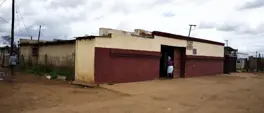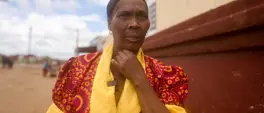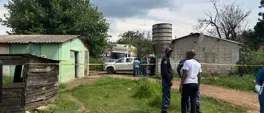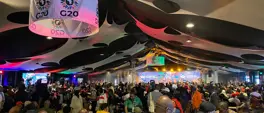Author Niq Mhlongo looks at Johannesburg through new eyes
AFP
5 September 2024 | 9:10The City is Mine is a story of passion and desperation in South Africa's rough-and-tumble economic capital, disfigured by the policies of racial segregation in place until democracy in 1994.
JOHANNESBURG - A dangerous, decaying megalopolis where abandoned cemeteries and a brothel provide refuge: South Africa's gritty, apartheid-scarred city of Johannesburg is the star of Niq Mhlongo's latest novel written from the fresh perspective of his new home in Europe.
The award-winning writer was born in Johannesburg's sprawling Soweto township 51 years ago and the dilapidated city still holds his heart, even though he has lived in Berlin for the past five years.
The City is Mine is a story of passion and desperation in South Africa's rough-and-tumble economic capital, disfigured by the policies of racial segregation in place until democracy in 1994.
"I write nostalgically about my city of Joburg," Mhlongo told AFP during a visit to South Africa for the release of the book. "Living abroad has made me look at Joburg with a different kind of an eye."
The lively dialogue, local slang and humour of Mhlongo's first novel Dog Eat Dog (2004), a cheeky tale of a black student from Soweto who plays on white guilt to survive propelled him to the forefront of a new generation of black South African writers.
In his latest book, he revisits every corner of his home town and in the company of a character who is as distressed as the inner city, having lost his partner, his house and his car.
The City is Mine highlights the relationship between mental illness and the breakdown of the city itself, says Mhlongo, who has a salt-and-pepper goatee and a round face.
"What kind of person walks in a city that is that dangerous?" he asks.
Walking is "when we are all able to see and smell the city. Overcrowding, pollution that contributes to stress. Decay and dirtiness," he adds.
Established in a gold rush 150 years ago, Johannesburg has always drawn people through its promise of opportunity. Today burdened by inequality, poverty, crime and collapse, it is unable to provide jobs, homes or basic services for many of its 4.8 million people.
What a city gives you, "it can take it back at any time," says Mhlongo, who writes of the masses of wretched people trying to survive on filthy streets and under ugly bridges.
Last night at the Menlyn Exclusive Books, Pretoria launch. My moderator Tebogo Ditinti decided to wear a beautiful dress with The City colours for our session and the whole bookshop became bright. pic.twitter.com/78veLV6TK4
— Niq Mhlongo (@NiqMhlongo) September 4, 2024
BROKEN CITY
After his devastating series of losses, the main character in The City is Mine cannot return home: he does not have the cash for the financial obligation of the "black tax".
He seeks out places that provide a "refuge for the mind". There is a brothel: "It's free therapy for the brokenness of the city and of the soul."
And the calm of cemeteries that still reflect the geography of apartheid that zoned suburbs -- and graves -- according to race.
"I am bleeding, looking at South Africa," says the writer.
But he is optimistic about the government of national unity installed after the ANC lost its majority in May elections and says he is sure to return.
There are freedoms he cherishes in Berlin, such as being able to walk at any time without fear of mugging. "I'm encouraged by seeing people reading outside; they read a lot in the parks, in the cemetery people are reading," he adds.
There is also electricity 24 hours a day, he said, referring to South Africa's chronic problem with power supply.
But, "In Berlin, you can go to a bar, order a beer and drink it without anybody greeting you... In South Africa a second will never pass without somebody striking a conversation that might be helpful for thinking about how to write stories," he says.
And then there is the weather. "Their winter is so bad. It shuts your mind," he jokes. "In Joburg, you never get three grey days in a row."
"South Africa will always remain my source of stories," says Mhlongo.
Get the whole picture 💡
Take a look at the topic timeline for all related articles.
















